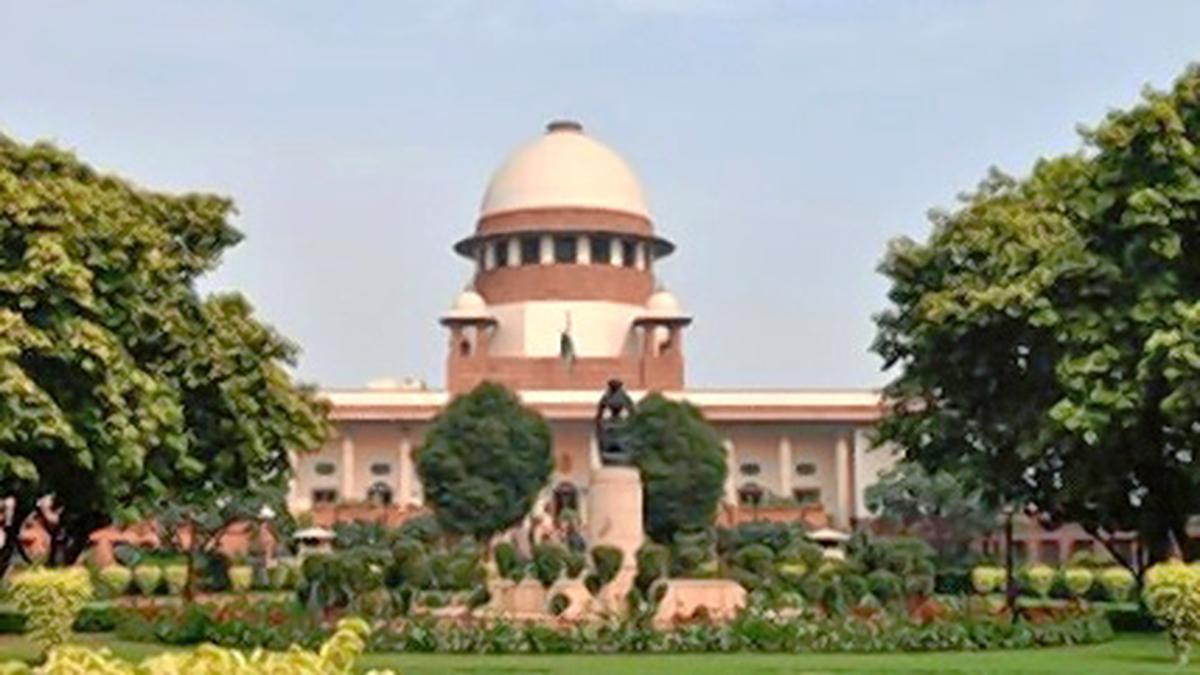
Supreme Court barred the Gujarat government from transferring to any third party lands in Gir Somnath district where the local Muslim community says demolitions of its religious structures were carried out illegally. File
| Photo Credit: Sushil Kumar Verma
The Supreme Court on Friday (October 25, 2024) barred the Gujarat government from transferring to any third party lands in Gir Somnath district where the local Muslim community says demolitions of its religious structures were carried out illegally.
A Bench headed by Justice B.R. Gavai said the lands should remain with the government till the next date of hearing on November 11.
The court however did not entertain a request made by Auliya-e-Deen Committee for interim relief of status quo with respect to the demolitions. The committee said the lands were Waqf property.
It argued that nine Muslim religious places of worship, graveyards and hutments, some of which were protected monuments, were razed by the authorities in spite of successive Supreme Court orders on September 17 and October 1 freezing “illegal demolitions” of a communal or retributive nature across the country.
The petition filed by the committee, through advocate Ejaz Maqbool, argued that the people concerned were not even given an opportunity to remove their personal effects.
Its petition said the Muslim places of worship on the land extending over 55 acres had been existing for over a century. The land was allotted to Muslim community by the erstwhile princely State of Junagadh for a qabarastan (graveyard).
“The lands were being used as qabrastan/graveyard since time immemorial and there were at least five dargahs, one masjid and one eidgaah, i.e., in all seven Muslim places of worship and two other such Muslim places of worship allotted by sanad [deed]. That is, in all, nine such Muslim places of worship along with several other graves/qabars,” the petition said.
The committee said the notices were issued on the nine religious structures by the authorities on September 12 under the Gujarat Land Revenue Code, 1879. They sought the suo motu revision of the mutation entries, dating from 1947, on the possession and existence of these religious structures.
The petition said the committee had sought time to file the documents based on which the mutation entries were sought to be revised after a period of 75 years.
“The representatives of the committee were detained at the office of the Collector on September 27 and September 28 at 5 a.m. and demolitions of all the nine religious places were carried out along with the other graves and hutments without letting the persons concerned remove their belongings including religious scriptures and holy books,” the petition noted.
Solicitor-General Tushar Mehta, for the Gujarat government, said the petition was part of a “narrative-building” exercise. The land belonged to the government, he argued.
Senior advocate Kapil Sibal, for the committee, said the land was registered under the Waqf Act.
“The reason given for the demolition is that the lands were near the Arabian Sea and therefore, near a waterbody. Protected monuments were razed to the ground. Can your Lordships imagine?” Mr. Sibal submitted.
The court, meanwhile, said the proceedings pending in the State High Court would continue.
Published – October 25, 2024 08:22 pm IST









![Best Weight Loss Supplements [2022-23] New Reports!](https://technologytangle.com/wp-content/uploads/2022/12/p1-1170962-1670840878.png)




